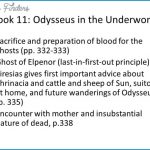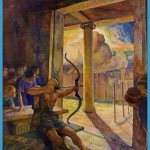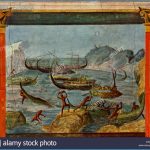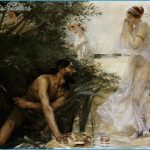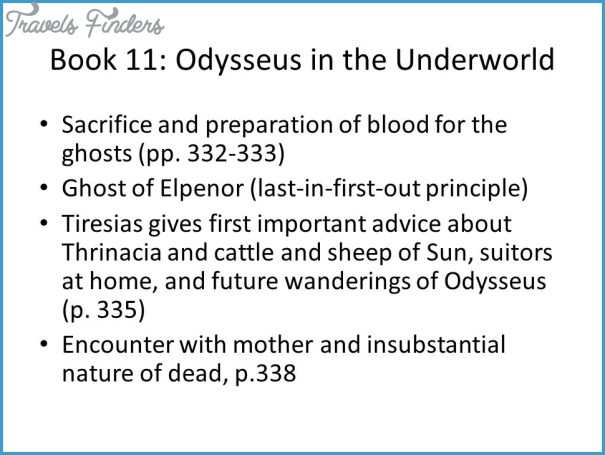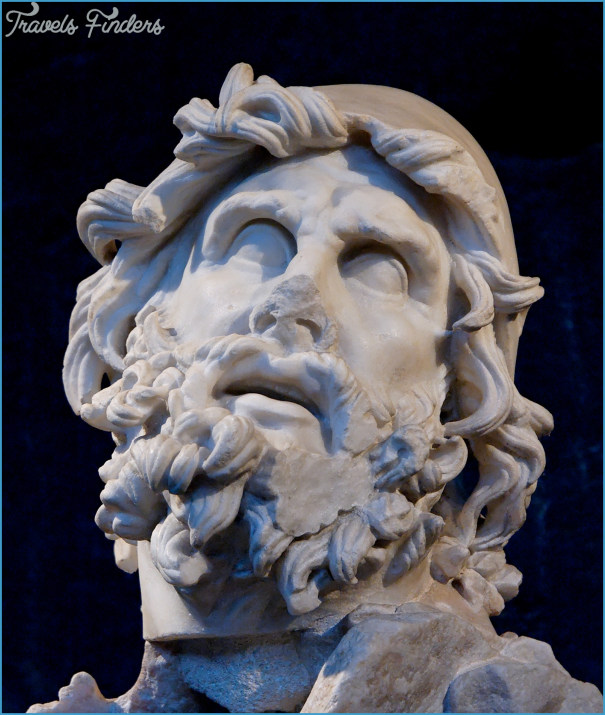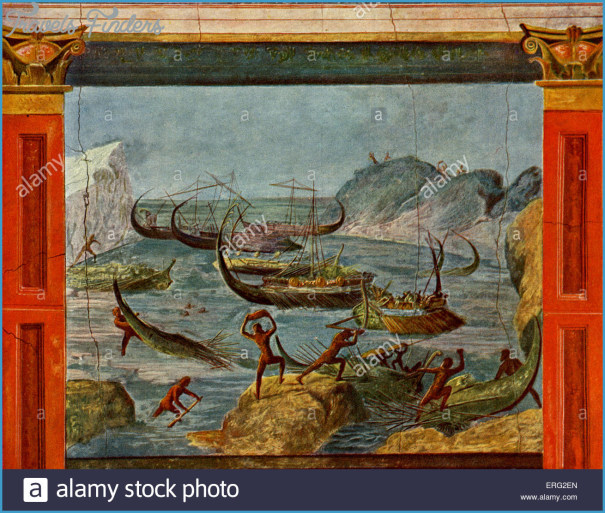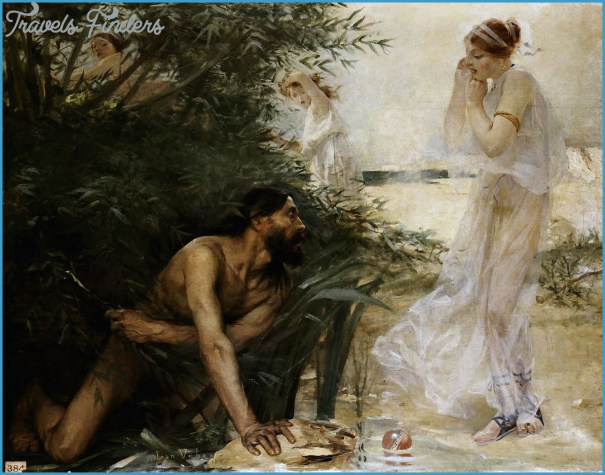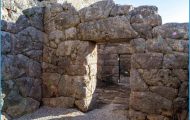Following the sack of Troy, Odysseus sailed with twelve ships to the land of the Cicones. Here he sacked the city and enslaved its women, but, not for the last time, his crew disobeyed him, raucously partying instead of making a swift escape. Cicones from the country’s heartland launched a dawn raid, inflicting heavy losses before the Greeks could flee.
Sailing south, a storm which wrecked so many other Greek ships forced them ashore; and later, trying to round Cape Malea, the wind and currents drove them off course. When they next made landfall, they had put the real world behind them and entered the realm of mythology. A brief visit to the laid-back land of the Lotus-Eaters saw many of Odysseus crew so stupefied by the narcotic effects of the ‘honey-sweet lotus fruit that they had to be forcibly dragged back to the ships.
The First Wanderings of Odysseus Photo Gallery
Their next port of call was much less welcoming: a land of Cyclopes. Polar opposites of civilized urban Greeks, these Cyclopes lived in isolated families without laws or decision-making assemblies. Nor did they honour the Greek concept of xenia, whereby strangers received hospitality when far from home. With twelve men, Odysseus entered one of their caves, where, overruling the suggestion of a quick raid and hasty departure, he stayed and feasted on the cheeses he discovered there. It was a rash decision. When the Cyclops Polyphemus returned with his flocks, he closed the cave’s mouth with a huge boulder. Then, spying the Greeks, he brusquely interrogated them, seized two, dashed out their brains and ate them Odysseus was helpless. Because of the boulder, escape was impossible, but next morning, after Polyphemus departed, leaving them still trapped, Odysseus hatched a plan.
That evening after Polyphemus consumed two more of his companions, Odysseus offered him a skinful of potent red wine, which he had fortuitously brought with him. The normally abstemious Cyclops accepted, asked Odysseus his name, and happily accepted his strange reply, ‘My name is No one. Then he collapsed in a stupor. Hurriedly the Greeks retrieved the sharpened stake they had hidden earlier, and heated its point in the fire. Then they rammed it into the sleeping Cyclops single eye ‘and the boiling blood surged out around it. As the eyeball burst it singed his eyebrow and both eyelids, and the roots crackled in the fire.’
With Polyphemus bellowing in pain, his fellow Cyclopes outside the cave demanded to know what was happening. ‘No one is attacking me’, he shouted, to which they replied: ‘If no one is confronting you and you are alone, Zeus must have caused your sufferings, and you must endure them. So, pray for help to our father Poseidon! Odysseus ruse defies translation. ‘No one in Greek is outis, but sometimes the form changes to me-tis, which in turn sounds like the word for ‘cunning – part of Odysseus epithet polymetis. So the Cyclopes reply could mean: ‘If cunning is confronting you. It is the first pun in Western literature.
Next morning, when Polyphemus let his flocks out to graze, the Greeks made their escape by clinging underneath the bellies of his sheep to avoid his fumbling grasp. Once out to sea, Odysseus taunted Polyphemus, announcing himself as: ‘Odysseus, sacker of cities, the son of Laertes, whose home is Ithaca. Unwittingly he thus provided all the details necessary to formulate a curse, which Polyphemus duly did, calling on Poseidon either to prevent Odysseus homecoming or to cause him to reach Ithaca after many years, in a stranger’s ship, having lost all his men.

